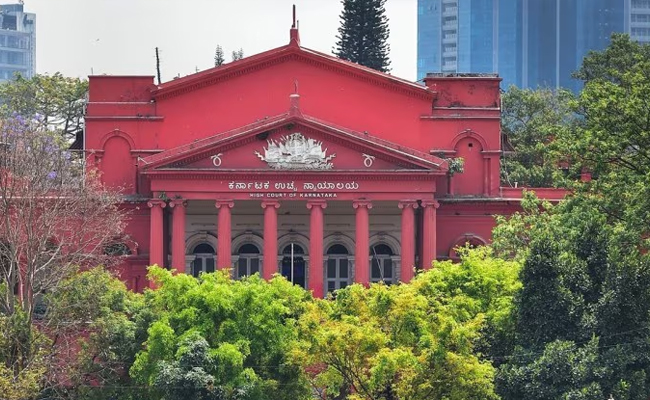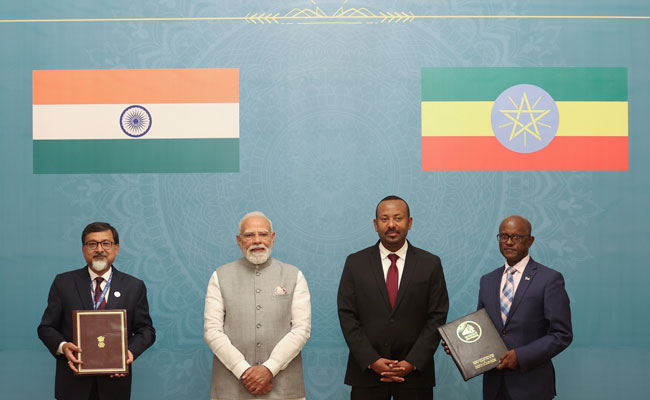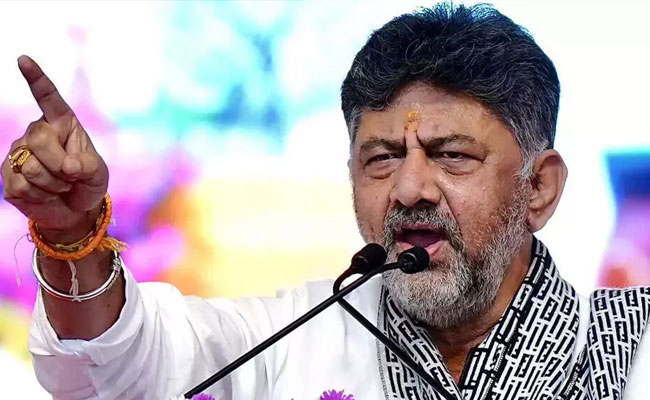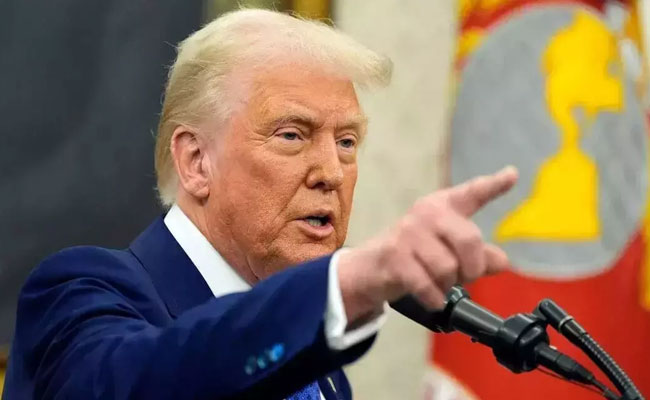Bengaluru: The Karnataka High Court has refused to quash a criminal case registered against BESCOM officials after the death of a woman and her nine-month-old child due to electric shock as the woman came in contact with a live wire broken and lying on a public road.
Justice M Nagaprasanna, who was a part of the single-judge bench hearing the case, dismissed the plea by BESCOM Executive Engineer Sriram and the Assistant Executive Engineer to quash the case filed against them under Section 304A of the Indian Penal Code (causing death by negligence), reports LiveLaw. The case was registered against the officials based on a police complaint filed by Santhosh Kumar, husband of the deceased woman.
The bench pointed out that, as the wife and the child of the complainant have died, it would amount to negligence, and that who holds responsibility in such cases of negligence would always be a matter of investigation or trial.
Stating that innocent lives were lost due to the negligence of the Electricity Department officers, Justice Nagaprasanna added that the officers would have to face the law and need to be accountable for what he called ‘a casual loss of life of a citizen’. “It is high time that these officers wake up, right from top brass to the man on the field and put their effort to obviate such instances being repeated overall again, as a citizen cannot bear the impact of repetition of such negligence, leading to death of lives,” he told the petitioners.
The complainant Santhosh Kumar had told the police that on November 19, 2023, they went to Hope Farm. His wife was carrying their nine-month-old daughter, when she came in contact with the live wire lying on the street, and the mother-daughter duo died of electrocution, suffering an electric shock.
As the locals reacted strongly to the incident, BESCOM transferred Sriram and suspended the second petitioner, but the High Court reversed both orders, forcing the petitioners to request the court to quash the case against them.
While the advocate representing BESCOM argued that the Assistant Engineer could be considered responsible for the incident, at the most. The petitioners, who held the posts of executive engineer and the assistant executive engineer under BESCOM, had no wrongdoing which could be directly attributed to them.
The prosecution, however, opposed the plea, saying many officials are charged in the case and everybody cannot wash off their hands on the basis of a report of an officer of the Electrical Inspectorate of the Electricity Department, who is an officer of BESCOM. It also rejected the report of the Electrical Inspectorate, which, after its inquiry, opined that it was ‘nobody’s fault’ and quashed the order of suspension.
Justice Nagaprasanna stressed that the death due to electric shock could not be compared to a branch of a tree falling on a passerby. He pointed out that the broken live wire had been brought to the notice of the Department through the BESCOM helpline and the junior engineer was to attend to it, as it was his duty to immediately attend to helpline complaints. The judge also said, “Merely because other officers from Station Operator in the hierarchy have different roles and responsibility, they being officers of BESCOM in the operation and maintenance department, have to undertake periodic checks of wires that are snapped and hanging. It is here the role of all these persons would become applicable.”
The statement of the Electrical Inspectorate in its inquiry report, calling it ‘nobody’s fault’, would not mean that these petitioners will be left off the hook, as the investigation in the least, should be permitted to continue, the High Court has stated.
Let the Truth be known. If you read VB and like VB, please be a VB Supporter and Help us deliver the Truth to one and all.
Addis Ababa (PTI): India and Ethiopia on Tuesday elevated their historical ties to a strategic partnership, as Prime Minister Narendra Modi held wide-ranging talks with his Ethiopian counterpart Abiy Ahmed Ali during which they discussed issues of bilateral and mutual interest.
Modi, who arrived here from Jordan on his maiden bilateral visit, was accorded a ceremonial welcome at the National Palace ahead of the bilateral talks, reflecting the vibrant India-Ethiopia relations rooted in shared history and a promising future.
"We are elevating India and Ethiopia relations to a strategic partnership. This step will provide new energy, new momentum and new depth to our ties," Prime Minister Modi said during the delegation-level talks.
He thanked PM Ali for his support in India's fight against terrorism. "The support of friendly countries in this struggle against terrorism holds great significance," Modi said.
"Today, we got the opportunity to deliberate on the key aspects of our cooperation, such as economy, innovation, technology, defence, health, capacity-building and multilateral cooperation. I am pleased that today, we have decided to double the student scholarship for Ethiopia in India," Modi said.
Modi said that India and Ethiopia have shared contact, dialogue, and exchange for thousands of years. The two countries, which are rich in languages and traditions, are symbols of unity in diversity, he added.
"Both countries are democratic powers committed to peace and the welfare of humanity. We are co-travellers and partners of the Global South. On international platforms, we have stood shoulder-to-shoulder," he said.
The two sides signed eight MoUs/agreements, including upgrading ties to 'Strategic Partnership', customs cooperation, establishing data center at the Ethiopian Foreign Ministry, UN Peacekeeping training cooperation, debt restructuring under G20, more ICCR scholarships and AI short courses for Ethiopians, and support for maternal and neonatal healthcare.
Modi said the African Union's headquarters in Ethiopia makes the country a meeting point of African diplomacy. "Inspired by the common vision of an inclusive world, in 2023, India ensured that the African Union became a G20 member," he said.
In 2023, during India’s G20 Presidency, the African Union was admitted as a permanent member of the G20.
Modi said that though this is his first visit, he felt a deep sense of belonging and warmth, reflecting the thousands of years of connection between the two countries.
On his part, Prime Minister Ali said the two countries share over thousands of years of connection through trade, diplomacy, education, culture and even in our food and traditions. "These ties continue to shape a deep friendship, collaboration and mutual respect between our people," he said.
"We also appreciate your consistent message that Africa's priorities must lead the partnership. These kinds of dignified, respectful messages for Africa are very important. Mr Prime Minister, keep pushing. That is the type of message we are expecting from all our trusted friends," Ali said.
He said this aligned fully with Ethiopia's development plan - African-owned, African-led, and African-defined.
"Today, we meet with a clear focus to shape a modern partnership, grounded in sovereignty, self-reliance and practical cooperation. Our cooperation is rooted in equality and South-South solidarity," he said.
"Our economy is performing strongly. Last year, we grew 9.2% and this year we are expecting 10.3% GDP growth. Besides GDP growth, our FDI inflow is also rising big time. India is the leading source for our FDI," he said.
"We have more than 615 Indian companies which are investing in Ethiopia. This all gives our cooperation a strong foundation of trust. I think our decision today that we elevate our historic relationship to a strategic relationship is the right decision," he added.
Ethiopia also conferred its highest award - The Great Honour Nishan of Ethiopia - on PM Modi. He is the first global head of state to receive this award.
Prime Minister Modi also went to the Friendship Park and Friendship Square in Addis Ababa with PM Ali.
In a warm and special gesture, PM Modi was earlier received by his Ethiopian counterpart at the airport and accorded a warm and colourful welcome.
"Ethiopia is a nation with great history and vibrant culture," Modi said.
PM Ali informed his Indian counterpart about the varieties of Ethiopian coffee during informal talks.
"At Addis Ababa airport, took part in a traditional Coffee Ceremony with Prime Minister Abiy Ahmed Ali. The ceremony beautifully highlights Ethiopia’s rich heritage," Modi said.
In a unique gesture, the Ethiopian Prime Minister drove Modi to the hotel.
On the way, he took a special initiative of taking PM Modi to the Science Museum and Friendship Park, which was not in the itinerary.
"Gratitude to Prime Minister Abiy Ahmed Ali for showing me glimpses of Ethiopian history and culture at the National Palace Museum in Addis Ababa. It was a powerful reminder of Ethiopia’s rich traditions," Modi said in a post on X.
The Nobel Peace Prize-winning Ethiopian PM’s special gestures show remarkable respect for Modi, sources said.
"Thank you Ethiopia for a welcome that was unforgettable. The Indian community showed remarkable warmth and affection. India-Ethiopia friendship is going to get even more robust in the times to come," Modi said.
When Modi arrived at the hotel, he was warmly welcomed by the members of the Indian community. Local artists performed dances. Some of them danced on the theme of the popular Hindi song 'Aisa Des Hai Mera' to welcome him.
On Wednesday, Modi will address the Joint Session of Parliament and share his thoughts on India's journey as the "Mother of Democracy" and the value that the India-Ethiopia partnership can bring to the Global South.
PM Modi arrived in Ethiopia from Jordan, where he held a one-on-one meeting with King Abdullah II at the Husseiniya Palace on Monday before the delegation-level talks.
India and Jordan also inked MoUs in the fields of culture, renewable energy, water management, digital public infrastructure and twinning arrangement between Petra and Ellora, aimed at giving a major boost to bilateral ties and friendship.
From Ethiopia, Modi will visit Oman on the final leg of this three-nation tour.





